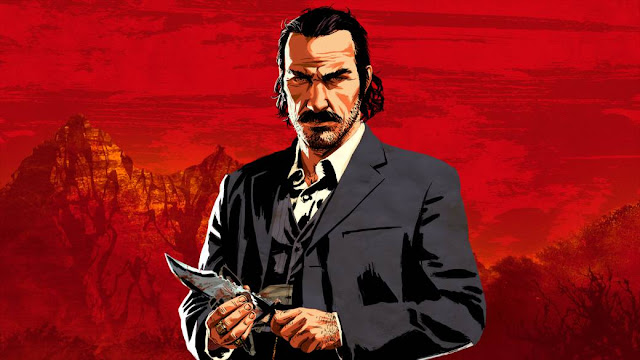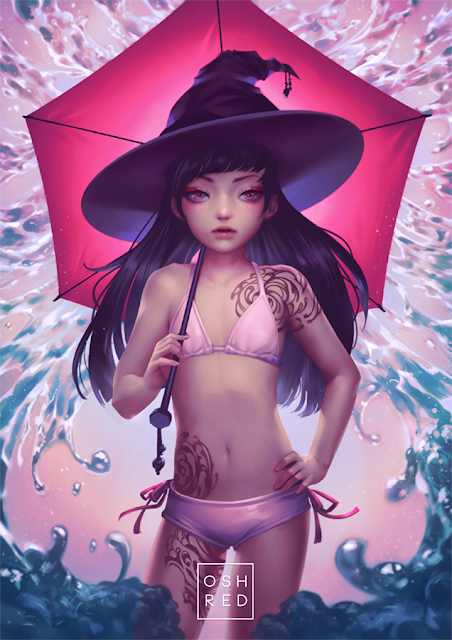Dutch Character analysis part 2
In the last article I ended it with the need for the writer to create a moral need in a character, John Truby in Anatomy of Story provides a seven step technique that I will be using to analyze the different aspects of Dutch and how he relates to the other characters in this article.
The first thing we need to do is distinguish between a moral need of a character and a psychological need. A good character has both, because the characters are often conflicted internally as well as externally and the story is the adventure we go on to watch this internal and external conflict get resolved one way or the other. The psychological need then is the internal weakness that is holding him back, something profound that he is missing in his life that he must overcome and acknowledge in order to grow in some way.
1) WEAKNESS AND NEED
Weakness is haunted by a broken family when his father is killed in the Civil War, and leaving his mother behind at 15 to become an outlaw. He wants revenge for people he has lost namely Annabelle and his father. In essence he wants to be above the law, and thinks of himself as better than others.
Need he needs to come into his own as a father figure to the people around him and lead them correctly. He needs to let go of the past and live a righteous life and atone for his sins in the past. He has to come to terms with a changing world that is leaving his way of life behind.
When we look at the first step of creating a character with a serious flaw, we distinguish this first one as a flaw that is hurting no one but the hero. Dutch's psychological problem of coming from a broken family and trying to recreate a family in the form of a outlaw gang that he is the patriarch of does affect the other people around him but the core of the issue comes down to Dutch's troubled past as we see this lust for revenge is dialed up over the course of the story. The moral problem the character has is the second thing to consider in this first step.
The moral need the character has takes this personal psychological problem that he has and extends it outwards to where it affects other people, this increases the scope of the character and helps move the audience in a more empathic way since we see the characters are not in a vacuum and the choices of one character affects others. John also says that a moral problem of a character keeps the character from being a perfect character or a victim, which are both kisses of death to a story he says.
What is the immoral action that comes naturally out of his psychological weakness?
The immoral action that follows his weakness is a cruelty to other people who stand in the way of his supposed family. They started out as a gang that robbed and gave to the poor and slowly as people like Micah entered the family Dutch's more narcissistic tendencies came out and they turned naturally towards more and more violent behavior as we see them going for revenge against the Driscolls and other families they encounter.
The other side of this first step is the problem this is established in the beginning of the character arc:
The Problem: The once idealistic utopia that Dutch sells to his gang of their future is already falling apart as they find themselves in the middle of a blizzard while running from the law.
2) DESIRE
Desire is the driving force of the story, the characters desire is what makes the story go forward and a understanding of the characters desire is what makes audiences go along for the ride. If the audience does not understand the desire then they cannot relate to the story. The desire should be intimately connected to the need of the character, for example a lion is hungry and needs food (need) and he sees a deer he wants knowing that if he kills it he wont be hungry anymore (desire).
Need is about overcoming a weakness within the character where as desire is a goal outside of the character. Lets revisit need and see how desire connects to it, with this we will just focus on one of the central needs that dutch has in this aspect of his character.
Need: he needs to come to terms with the changing world around him.
Desire: Dutch desires to live in a world of outlaws without the federal government and civilization encroaching on his "simple country folk" ways.
A story always starts with the weakness and need as the foundation, this is what makes the story meaningful and is something to be established first in a story otherwise the payoff doesnt exist and the story becomes unsatisfactory.
3) OPPONENT
A protagonist is defined by his antagonist in a lot of ways, now Dutch would obviously be the main villain in this story however since this is an analysis on him I would have to apply this in the reverse and think of his opponent as Arthur. The opponent and the hero always want the same thing, the opponent is not just keeping him from attaining his goal but is actually competing for the same goal.
This is what keeps the two characters in conflict with one another. The conflict that is established between the two of them and then carried throughout the story has its roots in the robin hood idealism that Dutch has sold to the gang. From the start we can see that Arthur admits that he is a "bad man" but for him there is a line to draw and he doesn't hurt innocent people or people he loves and cares about he only follows the robin hood philosophy of Dutch and believes that what they are doing is helping the poor and downtrodden as he once was helped by Dutch when he was in this same situation.
The divide between the two of them starts out almost immediately but subtly when Arthur questions Dutch's desire for revenge against the Driscolls at the beginning of the game. Arthur confronts him and Dutch rationalizes this vengeance, and this comes up a few times in the story throughout.
4) PLAN
The plan is the step of actions the hero will use to overcome the opposition and reach their goal. Dutch mentions throughout the story how their plan is to rob the rich enough to where they will be set for life to where they can all live in their utopia country world where the federal government has been beaten back by the outlaws.
5) BATTLE
The hero and opponent must engage in a punch counterpunch confrontation that escalates throughout the story. As RDR2 progresses Arthur and Dutch battle back and forth for what they view as their ticket to freedom. Arthur believes that they should have cut their losses and just lived their lives peacefully as country folk from the beginning where as Dutch has consistently dragged the gang into revenge missions disguised as "social calls" or stealing money from the rich. As the game goes on Arthur and other members of the gang lose their confidence in him as a leader as they are constantly having to run from the trouble they start.
6) SELF REVELATION
Dutch has the realization he's been fighting against things he cant change, and this includes his own nature at the end of the original RDR. Its at this time that Dutch pulls back the facade of who he has tried to be all his life and sees himself honestly for the first time.
7) NEW EQUILIBRIUM
The new equilbrium established in the RDR2 when John Marston and Sadie Adler kill Micah in the final mission.
In the next article I'll be looking at how all the characters relate to one another as a unit, which character fits which role and how they play off of one another.





Comments
Post a Comment